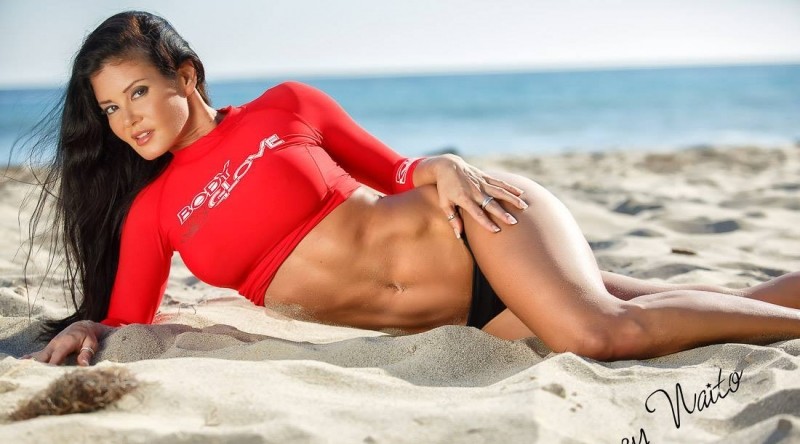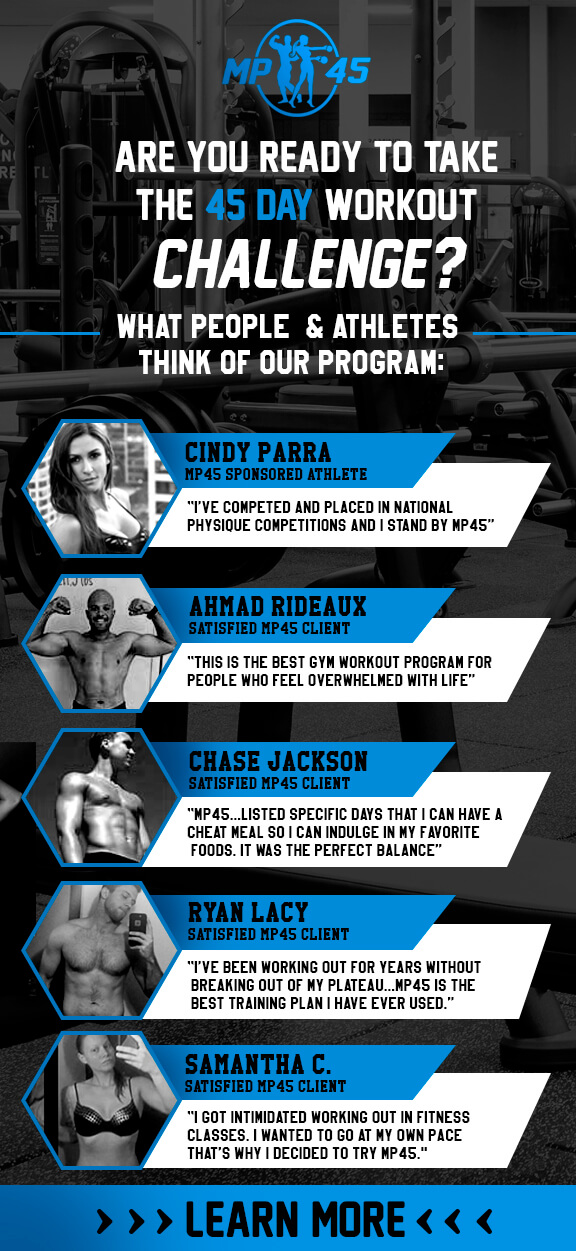Stacey Naito Interview

What sparked your interest in health and fitness?
SN: I battled anorexia when I was 19, dropping down to 85 pounds and reaching the lowest and darkest point in my life. Luckily, I became acutely aware of what I was doing to myself and decided to do a complete 180. I began weightlifting, changed my college major to Exercise Science, and worked as a trainer for several years after obtaining my Bachelor’s degree. Several years later, I obtained my medical degree and completed residency training, remaining consistent about clean eating and weight training the entire time. I still remember the first time I was in a gym lifting weights, and though I was a fish out of water initially, I had an intuitive sense of the mechanics involved, and it quickly became an indispensable part of my daily life. The combination of my medical training with my fitness background and extensive competition history put me in a unique position to inspire others to live optimally.
A few months ago, you earned your IFBB Pro Card. What did this mean to you?
SN: When I earned my IFBB Pro Card at NPC Team Universe in July of 2013, a huge sense of relief and accomplishment washed over me. Though I had earned five first-place national finishes in prior contests, I had repeatedly and narrowly missed Pro Status and was pretty frustrated about it. By the time I stepped onstage last July, I was determined to accomplish the goal I had been chasing since 2009. I took not one, but TWO first-place finishes as well as an Overall win, plus that coveted Pro Card. It was truly one of the proudest moments of my life.
What was the hardest part about getting your IFBB Pro Card?
SN: It took FOURTEEN pro-qualifiers for me to attain IFBB Pro status, which translates to a tremendous amount of time, dedication, prep and money. Though I loved the journey to that Pro Card, I was getting pretty weary from getting so very close and missing the mark repeatedly. In fact, I was so weary that I had considered skipping Team Universe in 2013 because I had competed at that event three years in a row and never had a stellar performance there. Thank goodness I decided to go for it! I trained harder for that event than I did for any other contest, fueled by intense drive and determination that others noticed.
 Besides being a fitness competitor, you are a physician and published medical researcher. How do you balance your time between everything you do?
Besides being a fitness competitor, you are a physician and published medical researcher. How do you balance your time between everything you do?
SN: It is extremely difficult for me to balance everything, but somehow I manage to keep up! I have to be aware of what is on my schedule at all times, and prepared to switch gears frequently, wearing the doctor hat, then the writer hat, the model hat, etc., often all in the same day. To be honest, I enjoy the challenge of keeping up with the shifting of gears because it suits my tendency to be an overachiever. I never complain about life being boring because it remains interesting all the time!
As a physician and published medical researcher, what would you say are some of the most important points to know about fitness and nutrition?
SN: The most important take-home message about fitness and nutrition I can offer from a medical perspective is that proper and adequate nutrition and regular exercise can truly be lifesavers. I have seen patients with major medical diseases such as hypertension, diabetes, and obesity who have been able to lessen the severity of such diseases through proper nutrition and exercise. The old adage, “you are what you eat” rings very true, especially in our modern society which is filled with processed and high calorie foods. Food can either be poison or it can be medicine for the body. Regular exercise has a powerful effect on mood, concentration, memory, strength, endurance, bone density and hormonal balance. Yet so many sedentary individuals refuse to believe that there are so many benefits to be obtained from engaging in consistent physical activity.
What do you believe is the most important exercise to do and why?
SN: Though I am a big fan of the deadlift, I believe the most important and versatile exercise is the squat. Squats engage the abdominals and large muscles of the lower extremities and can be done with barbells, dumbbells, medicine balls, kettlebells or weight plates. Foot stance can be adjusted in order to hit the quads or glutes more, but the compound nature of the movement makes squats ideal for building muscle in the entire region. Squats can even be performed when there are no weights available, either via free squats or squat holds. Since squats focus on the largest muscle, more thermic expenditure occurs and a metabolic boost results.
 A lot of people go on these crazy and unconventional diets including carb starving. Explain how important carbs are, and since there is time sensitivity that plays into that equation, at what times are they most effective?
A lot of people go on these crazy and unconventional diets including carb starving. Explain how important carbs are, and since there is time sensitivity that plays into that equation, at what times are they most effective?
SN: The low carbohydrate craze has created a new generation of carb-phobes, which is unfortunate. Our bodies require carbohydrates because in the muscles and liver. Once depleted, they can they provide glucose, the main energy molecule utilized by the cells in our bodies. In addition, the body can only store small amounts of carbohydrates. When nutrient timing comes into play, the goal is to shift body composition so that fat loss and muscle gain are optimized and glycogen stores are maximized. Such shifts have long-standing health benefits which can effectively prevent development of major diseases such as diabetes and high blood pressure. One caveat is that consuming excessive amounts of food will result in fat gain regardless of nutrient timing. During training days, you should consume higher amounts of protein and carbohydrate and decrease your fat intake. The general rule is to consume about 1 to 2 grams of carbohydrates per pound of body weight, with most of your carbs consumed post-workout. On your rest days, you should consume higher fat and protein while dropping your carb intake to about 0.5 grams per pound body weight.
The rationale behind this is that you want to encourage higher insulin levels post-workout, but lower insulin levels at all other times. You may want to bump up your carbohydrate intake a bit throughout the day if you are looking to gain muscle, since insulin stimulates growth or anabolism. You can also ingest carbs throughout the day if you are already lean and just want to maintain. However, if you are looking to lose body fat, you need to consume most of your carbs during and post-exercise, and consume mainly protein and fat during all other times.
What do you believe should make up a majority of a woman’s diet so she could stay fit and lean?
SN: A woman’s diet should first and foremost be balanced, with plenty of lean protein sources, leafy green vegetables, fruit, raw nuts, olive oil, coconut oil, and grains such as jasmine rice, oats and quinoa. In addition, women need to make sure they hydrate adequately, consuming at least 2 liters of water per day. Food sources should be whole and portion sizes should be relatively small if 5 to 7 meals are being consumed daily. Women should avoid eating carbohydrates alone, opting instead for protein as the staple for each meal.
What do you think is better for a post-workout meal: a real, natural food like turkey or whey protein in a bottle? What is the advantage of one over the other, or could they theoretically provide the same exact results?
SN: I will always recommend the whole food option over the processed option, so in this case the turkey is preferable to the whey protein. However, it can be difficult for some people to eat the quantity of meat that would equate with a scoop or two of protein powder. Whey protein can also be a convenient emergency protein source when whole foods are not accessible. Whey protein is readily digested, so it is great for the post-workout window. Personally, since I recommend the whole food option, I always make sure to consume lean protein from a whole source within an hour post-workout. I only consume whey protein post-workout on rare occasions when I cannot easily access whole foods.
 Besides a basic multivitamin, what do you believe is the most important supplement a female should take as she ages?
Besides a basic multivitamin, what do you believe is the most important supplement a female should take as she ages?
SN: Every woman should supplement with a calcium/vitamin D/magnesium combination three times a day to ensure optimal levels of all three substances. Most people only think of calcium as an important component of bone health, but magnesium and vitamin D3 are also critical. Since calcium, vitamin D and magnesium work synergistically, it is best to take formulations which combine all three substances into one convenient tablet.
What is your favorite quote and why is it so meaningful to you?
SN: “Fall down seven times, get up eight.” –Buddhist quote This quote has become my life mantra. I have dealt with major obstacles over the years and have overcome every single one, never giving up despite getting knocked down repeatedly. This quote describes the dogged determination I have had to accomplish every major goal I have set for myself, including the pursuit of a medical degree and an IFBB Pro Card.
What do you like to do in your free time?
SN: I really don’t get much free time, so this sounds like a fantasy question to me! However, on the rare occasion that I get to pause briefly, I enjoy movies and spending time with friends.
What are your goals both personally and professionally?
SN: My main personal goals center around having enough balance so that I can take care of myself a bit more, pamper myself with naps and massages, and have time to meditate, draw and work on video and book projects. Professionally, my ultimate goals are to become the female version of Dr. Oz with my own show, start a skin care cosmeceuticals line, write books and brand myself more effectively.









